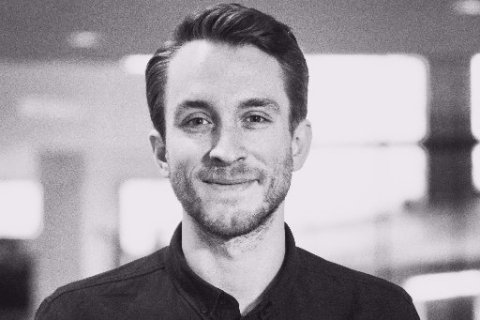Stories of Engagers 8: Timo Verlaat's research into better social assistance
Timo Verlaat is researching better assistance. The current social assistance rules are complicated and strict, and the municipality of Utrecht wanted to know if other rules might work better. About 750 Utrecht social assistance claimants were divided into groups with different rules. They completed questionnaires and some were also interviewed.

But the researchers also wanted to talk to the participants: "We wanted to see if we had missed things and we wanted to better understand the research results by learning from their perspective and experiences."
That is why he organized dialogue meetings with the help of the Public Engagement team of the Centre for Science and Culture (CWC). Those entitled to social assistance who participated in the study, were invited for an interview in the Academy Building, with a guided tour afterwards. Timo shares with us a few lessons he learned from this experience.
The interest is mutual
“I completely underestimated how much interest people had, both in the conversation with the researchers and in the guided tour of the Academy Building. Participants waited for the tour and afterwards said how much they liked it. They enjoyed learning about the history of the city. ”
Think about public engagement when setting up your research
“Looking back, I would have preferred to take this into account when setting up the research, so that I could have provided a budget. Now there was no money for a decent invitation to the participants. We did it by e-mail, but it would have been better to send a nice invitation by mail. That was really a lesson learned: at the beginning of the research you are not at all concerned with things like that, but you should actually force yourself to think about this aspect.”
You don't have to come up with it all by yourself
“The support from the public engagement program has been useful and valuable, the push in the right direction was very helpful. In retrospect, I also see that it was important that you emphasized the project had to be fun for the participants. As a researcher you are mainly concerned with what you want to get out of it, you have little time and want to get the most out of it, etc."
It really pays off
“We saw certain things confirmed, but we also decided, based on the conversations, to pay attention to certain topics that were not so prioritized before. For example, that people were happy with fewer rules but not with less information. We consider this an important nuance that we will include in the report for the municipality. In the conversation with the group that received extra guidance, it emerged that some did not experience this extra guidance at all or very differently. We also discussed this with the municipality.”
Creating authority by creating distance is not necessary at all
“As scientists, we are very good at building barriers: with difficult language, impressive titles, intimidating buildings, gowns, etc. We have just been removing barriers. For example, we put our first names on the invitations instead of our titles. You have to think about that and you have to find out what you want to achieve. Likewise, our photos: in neat clothes in the academy building, or not? In the end, we chose to stand in the library in our normal work clothes. Creating authority and reliability by creating distance is not necessary at all.”
Open Science also means: open possibility to participate in research
“What I am only now seeing: from an Open Science perspective it is also important that we have done this. I was always mainly focused on open access, for example that the policy report we delivered would be accessible to everyone, that we would share it with other municipalities, etc. But what I hadn't paid much attention to: Open Science also means open possibility to participate in research. We did a little bit by involving the client council, but there are many more opportunities to involve people in the process.”
Read more about this research: Better assistance through more personal direction, positive attention and extra remuneration

